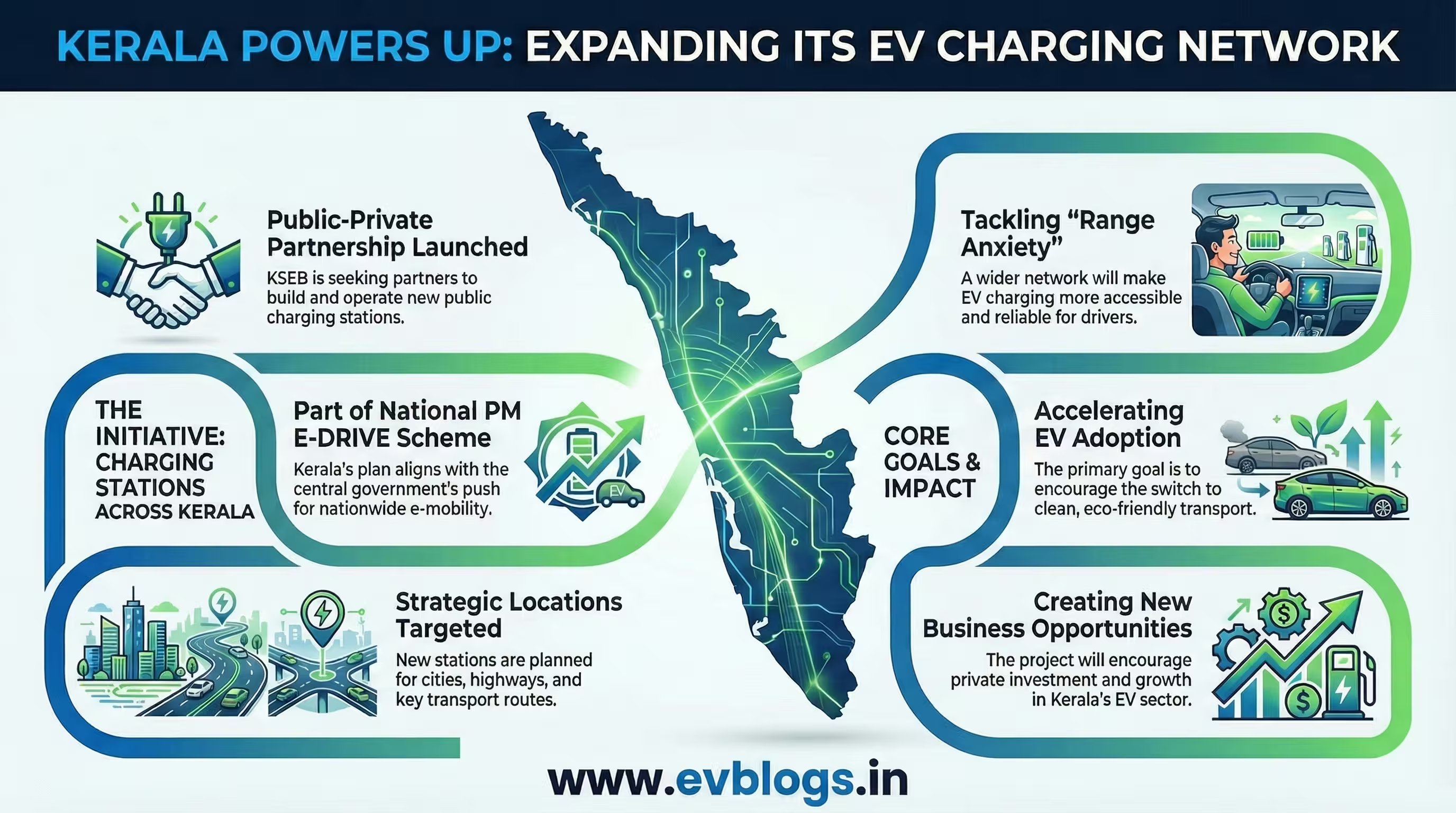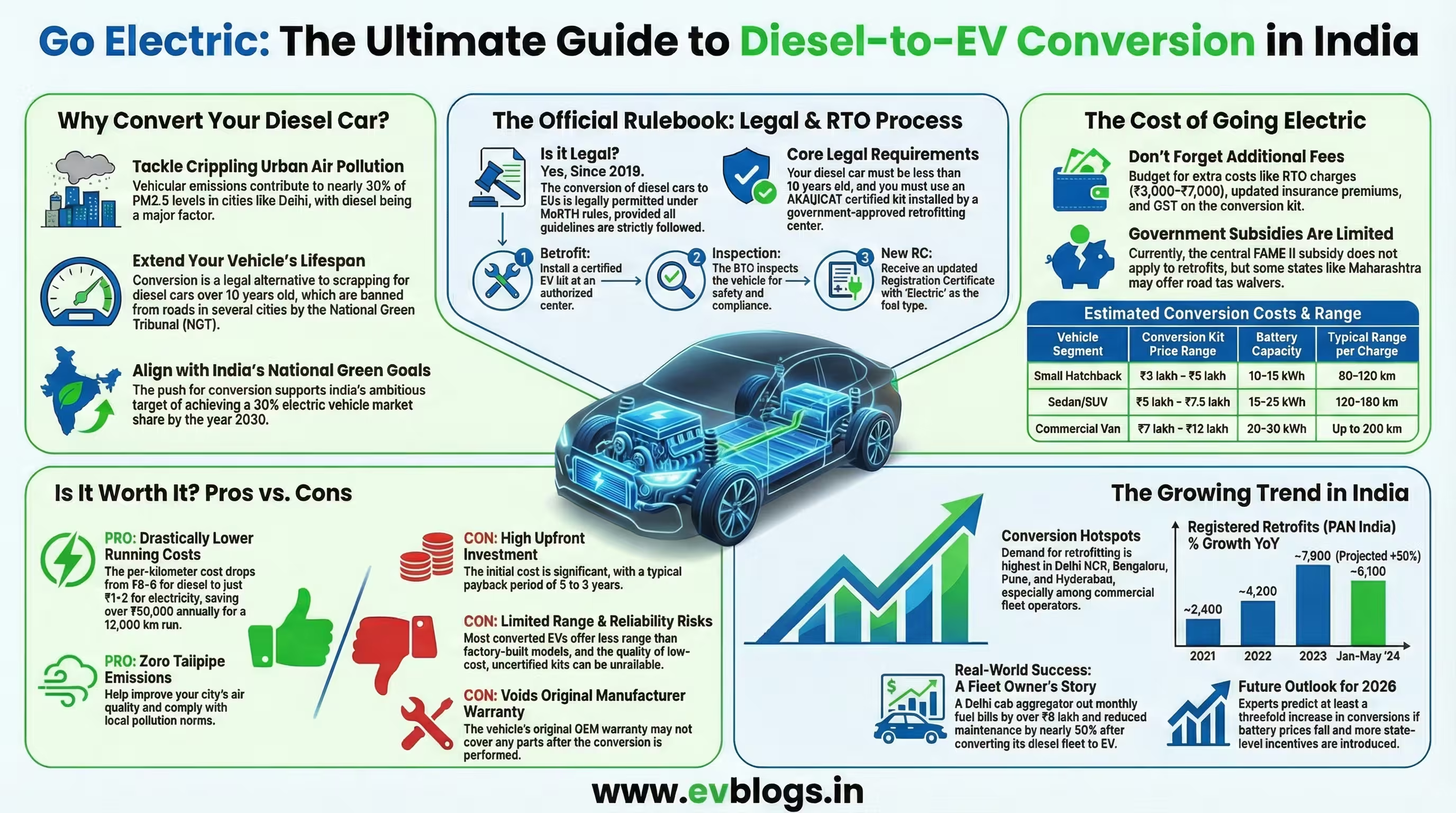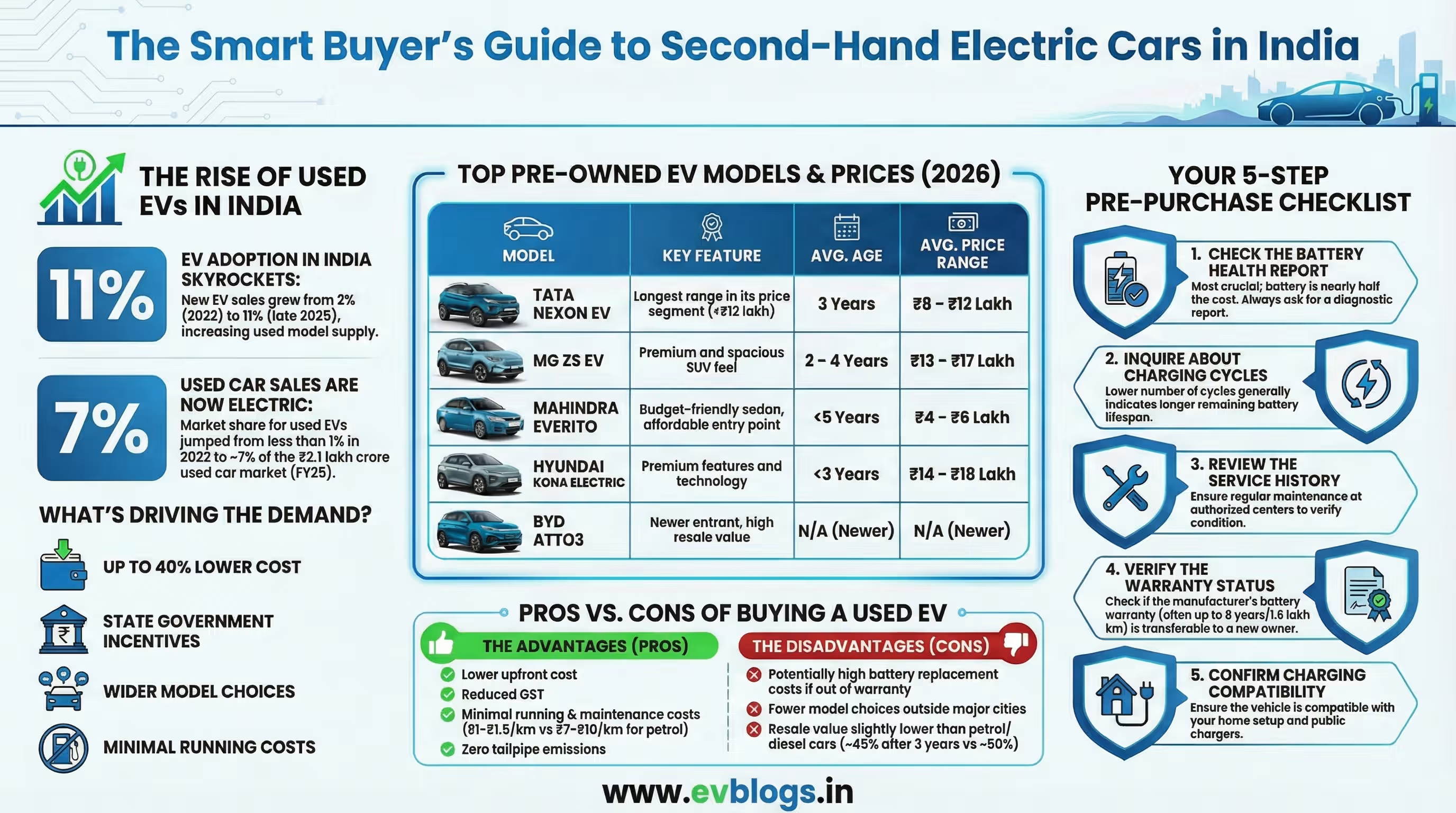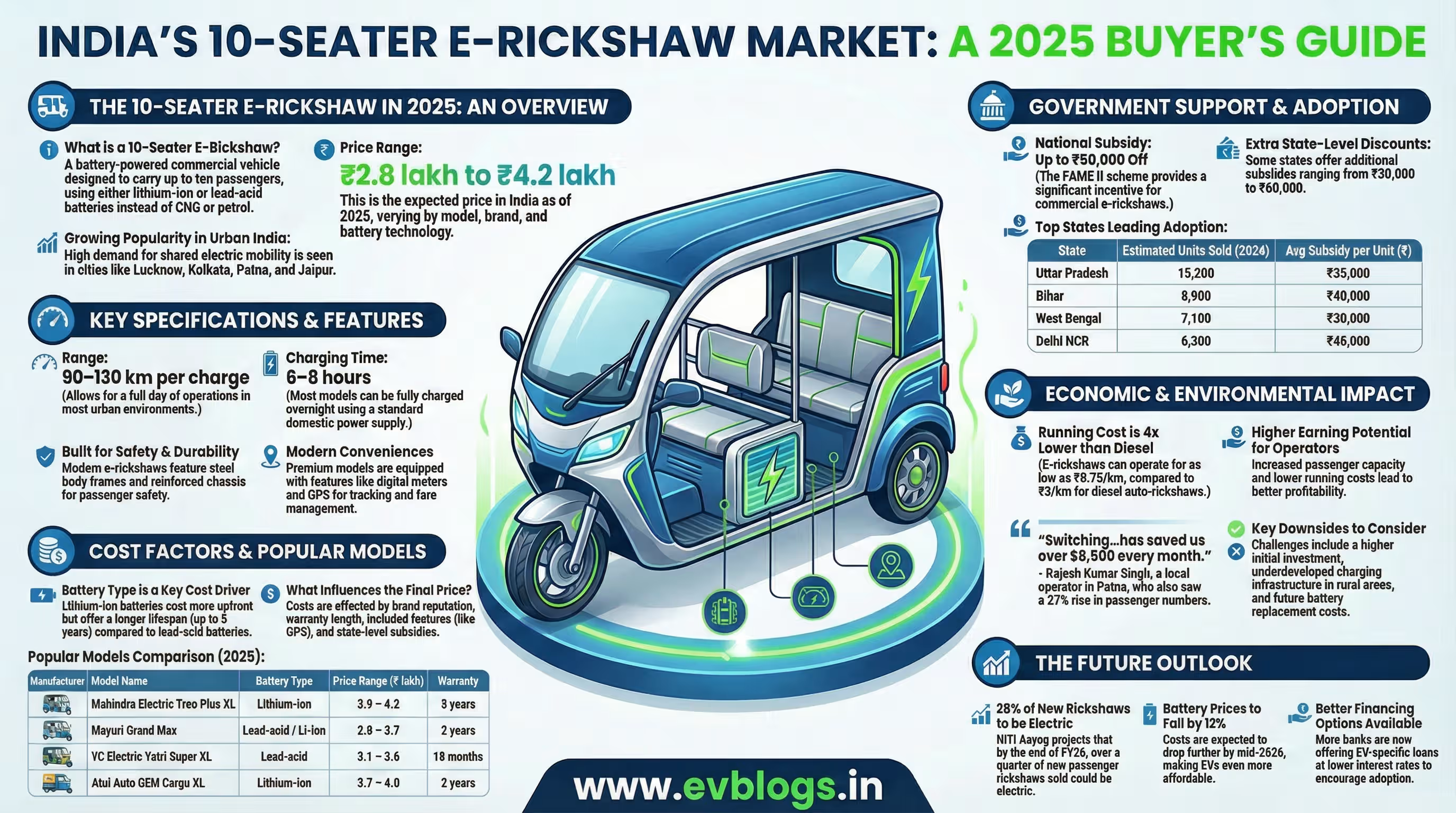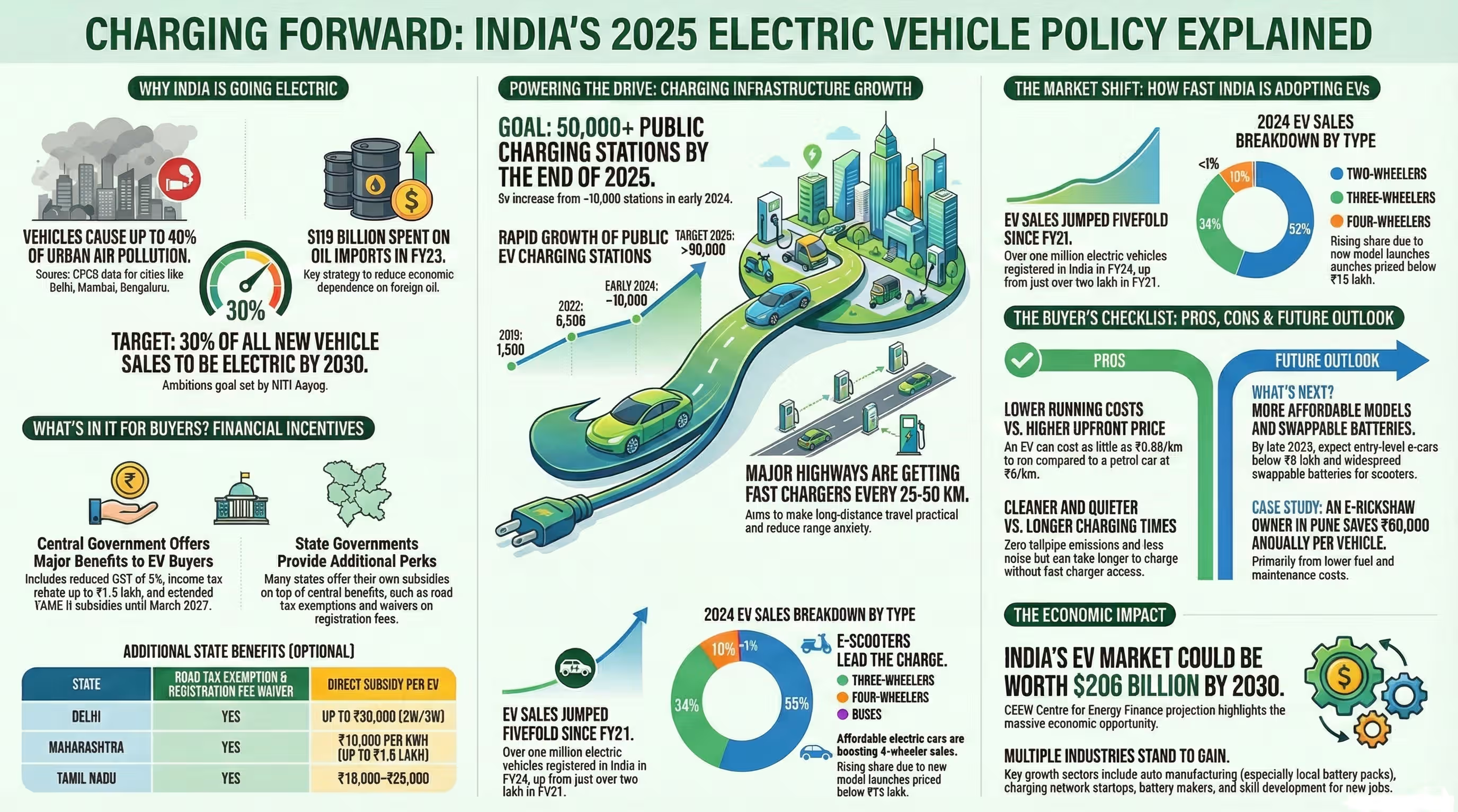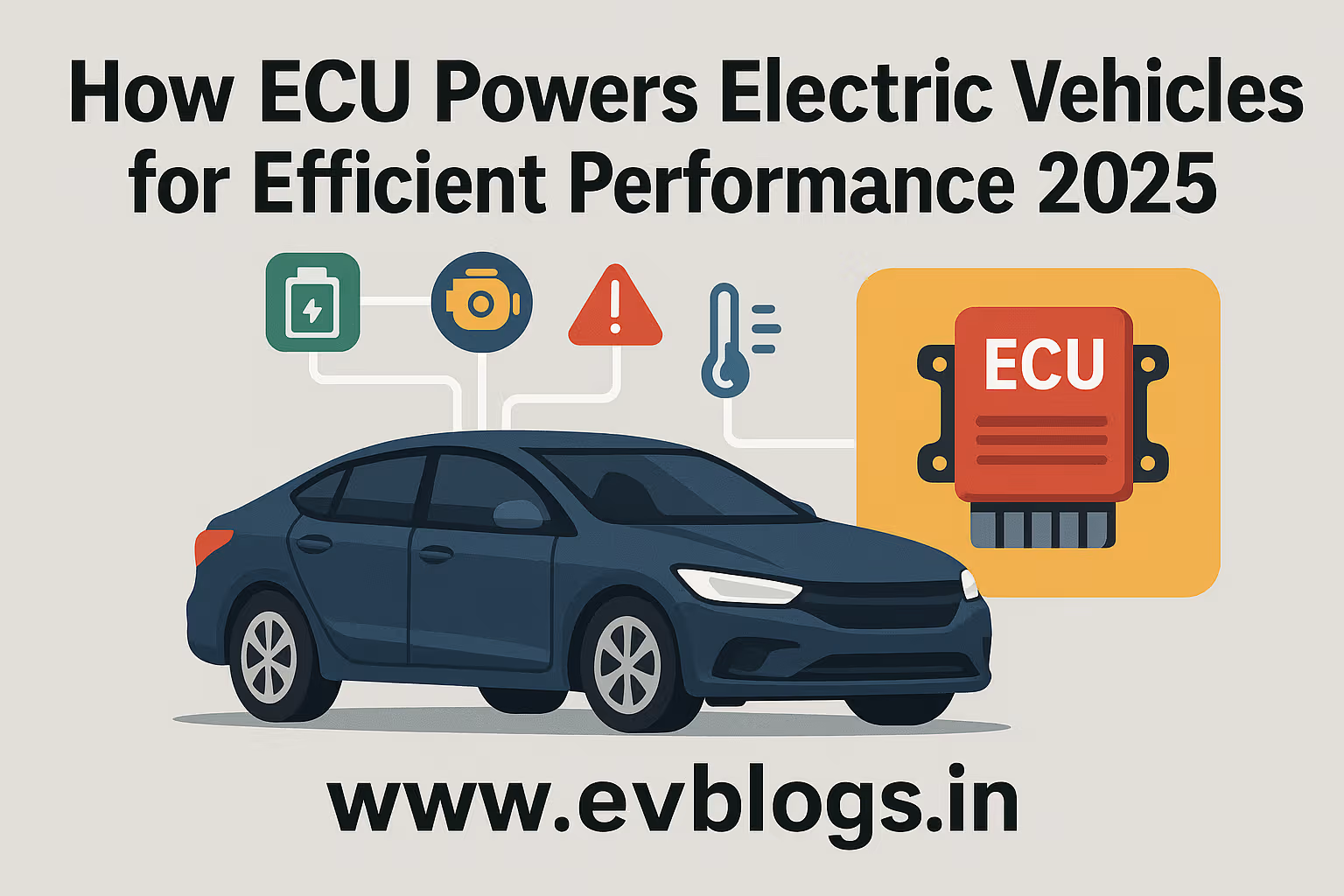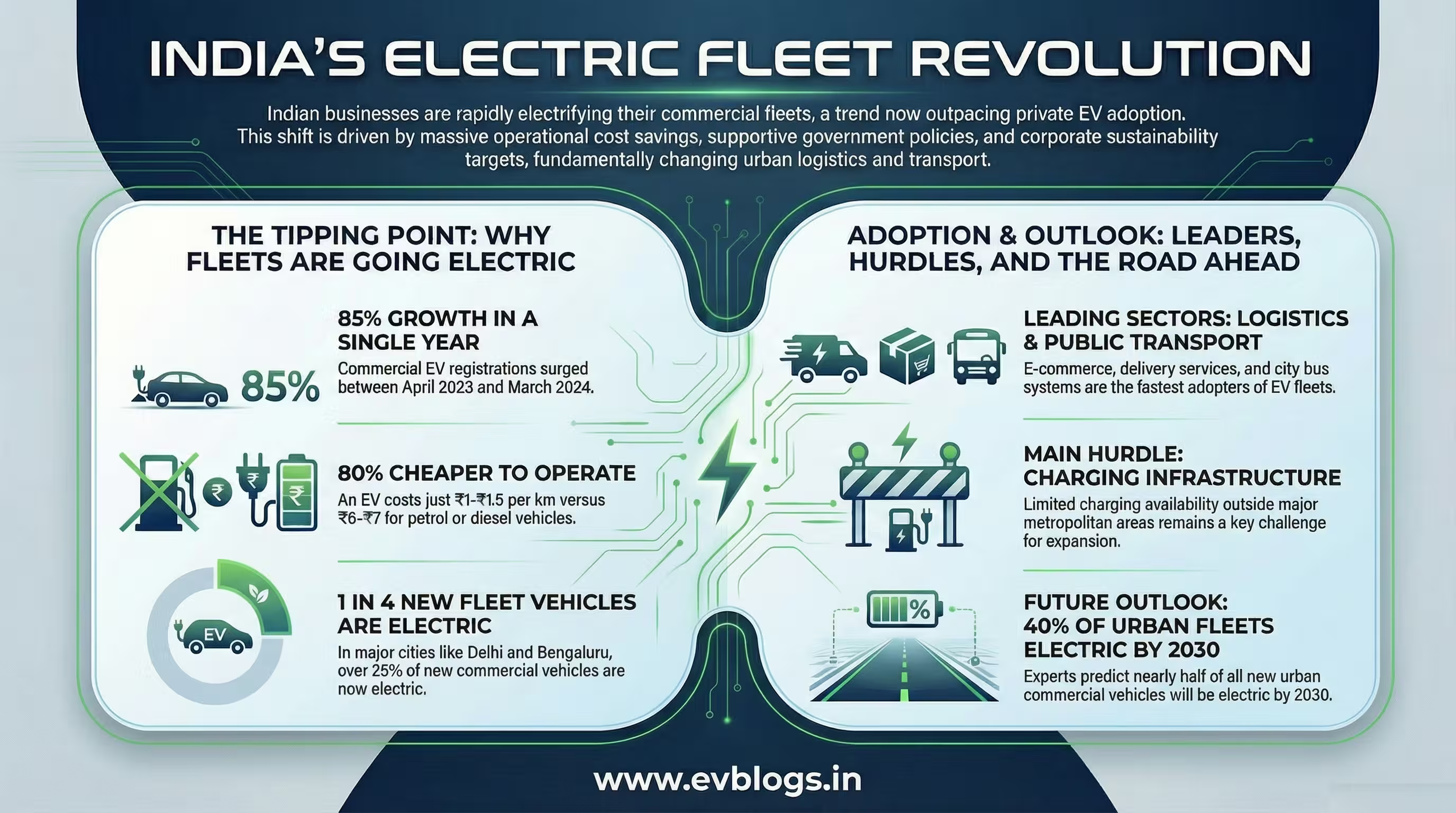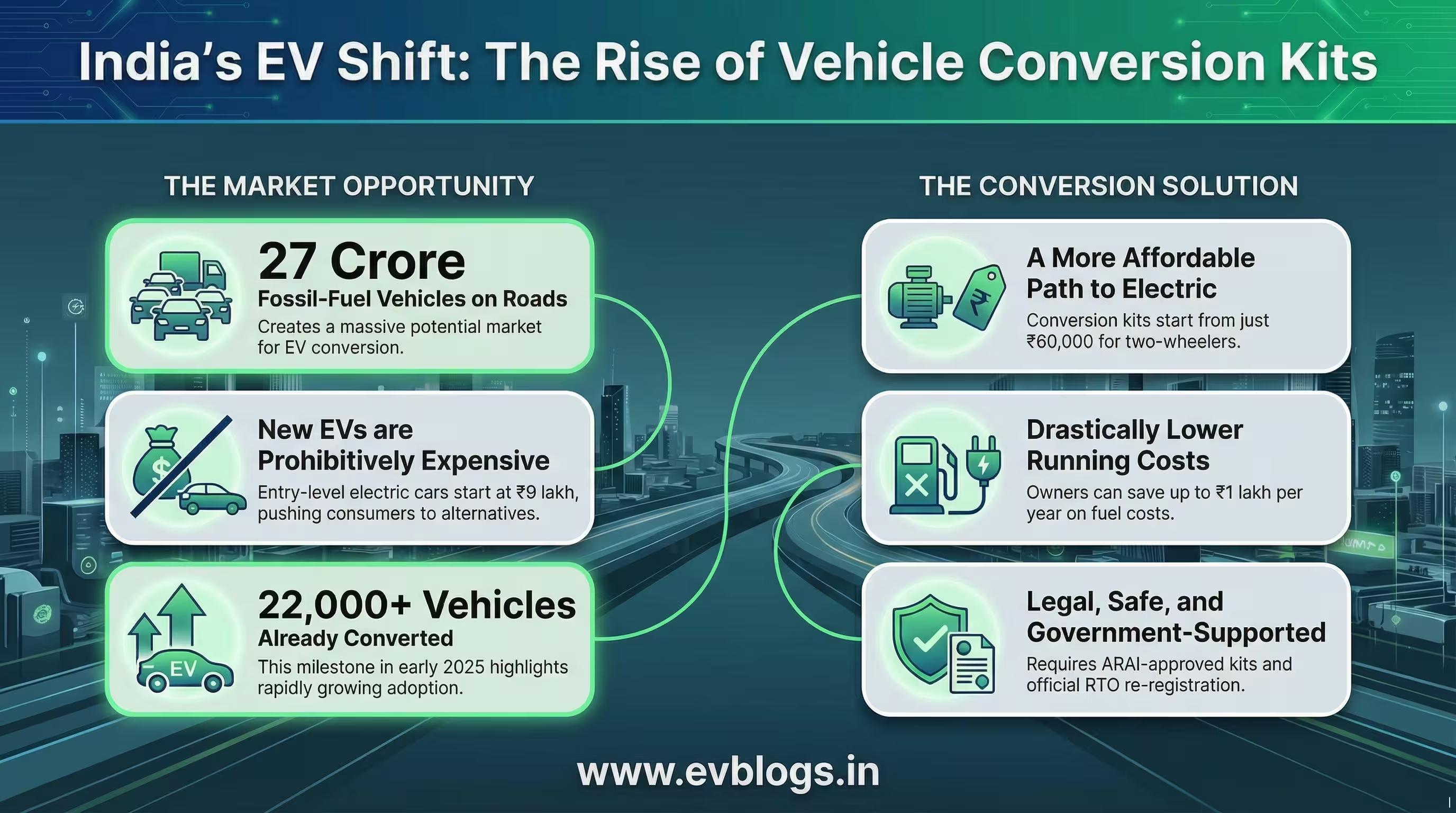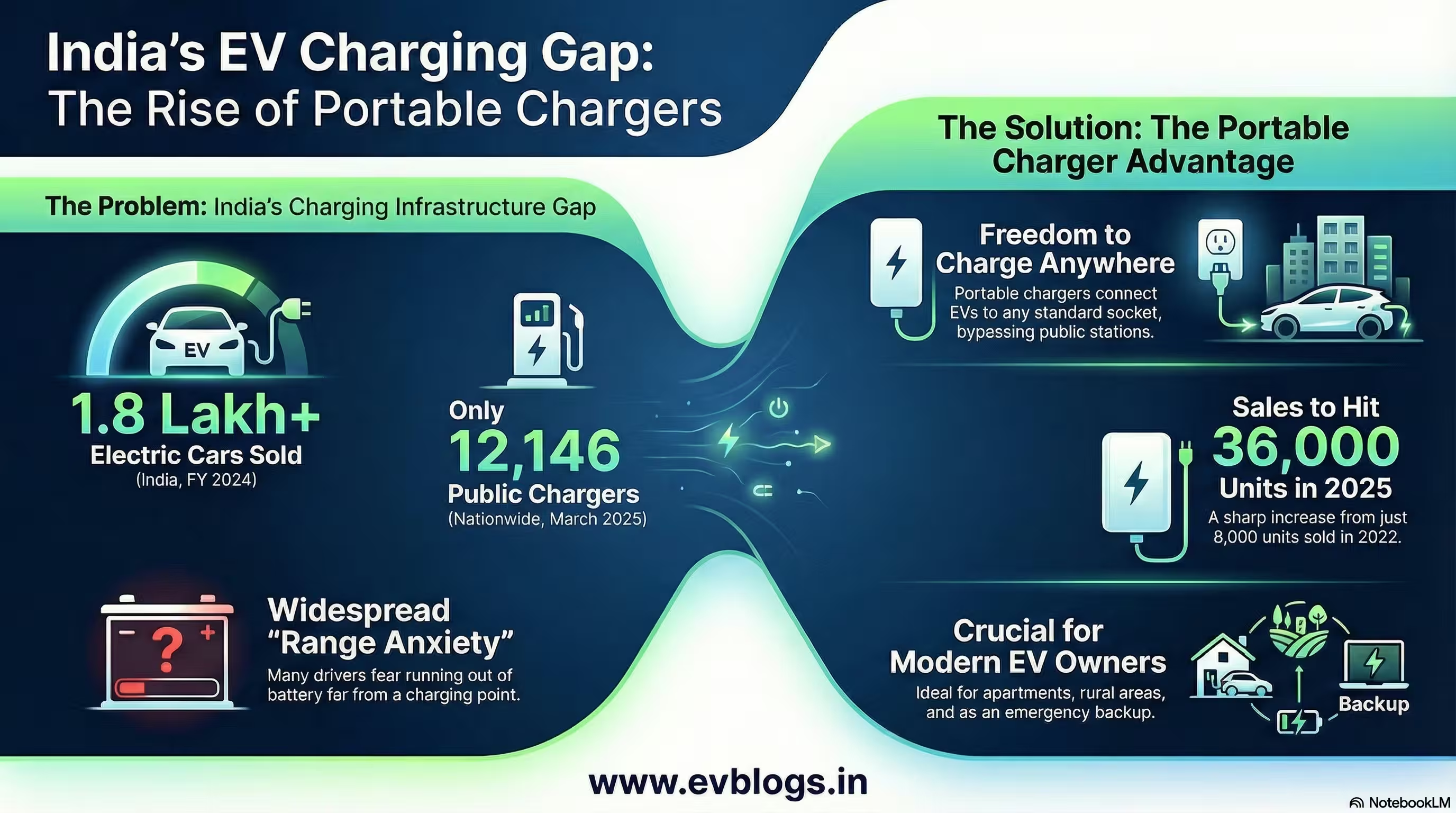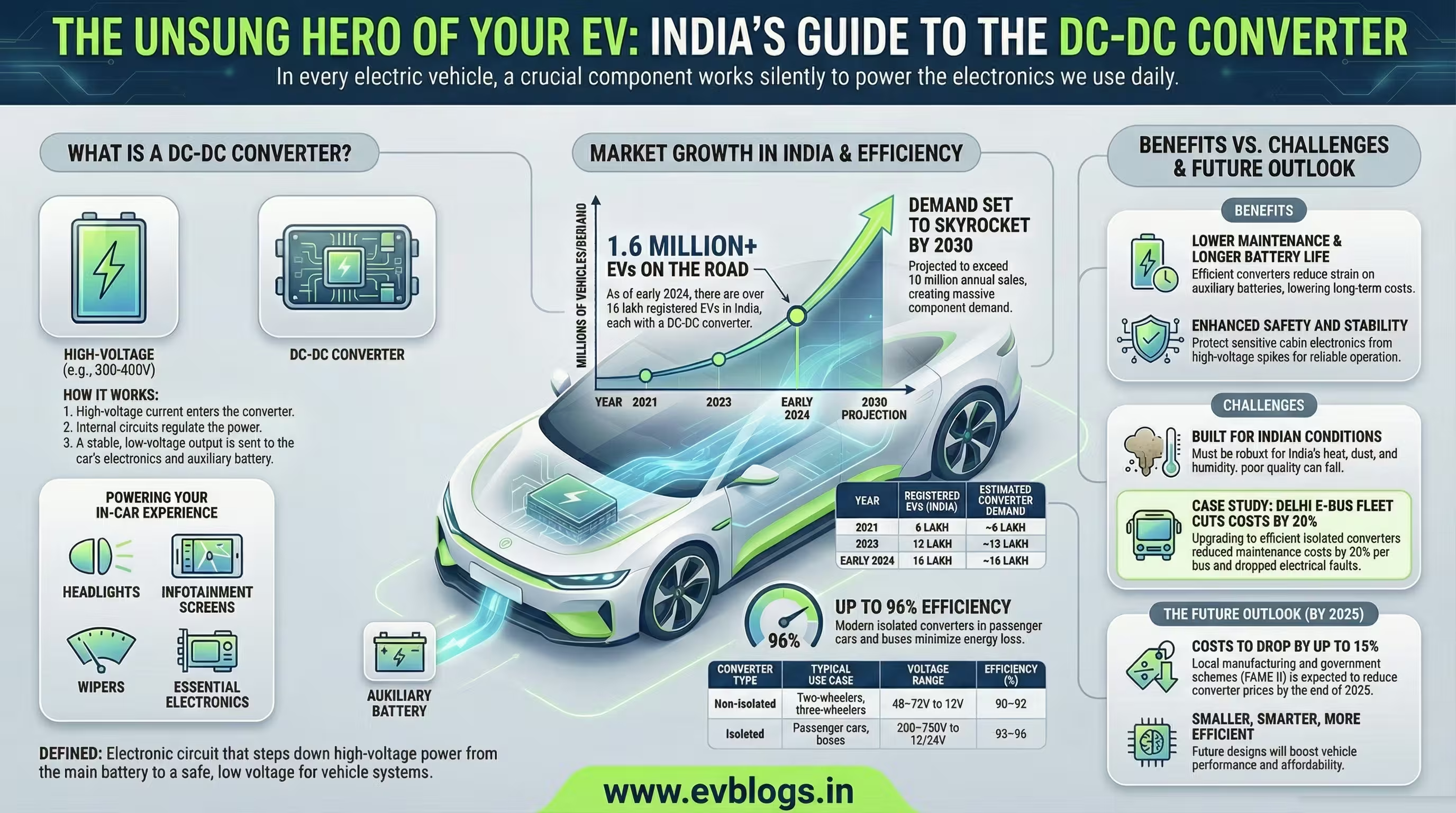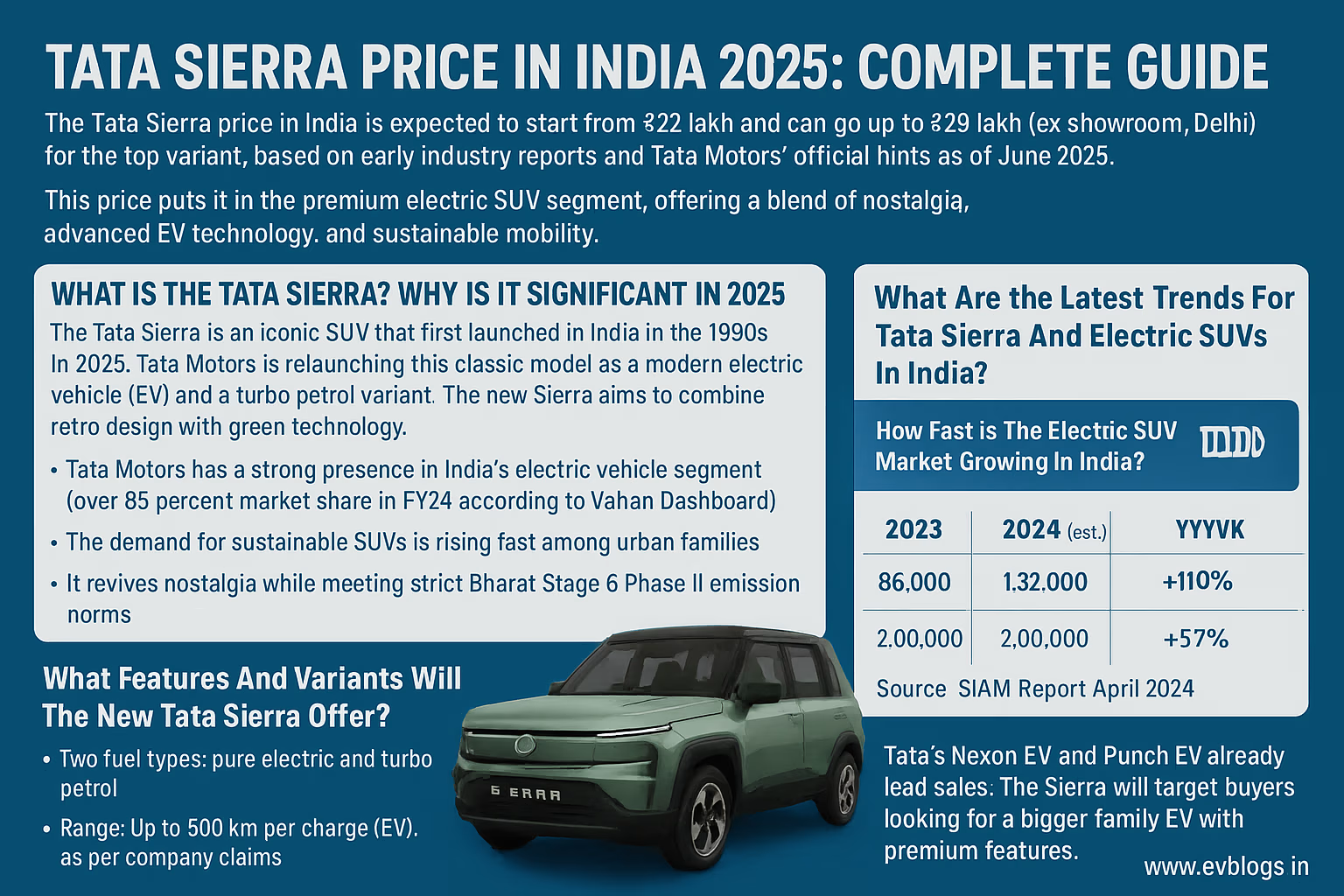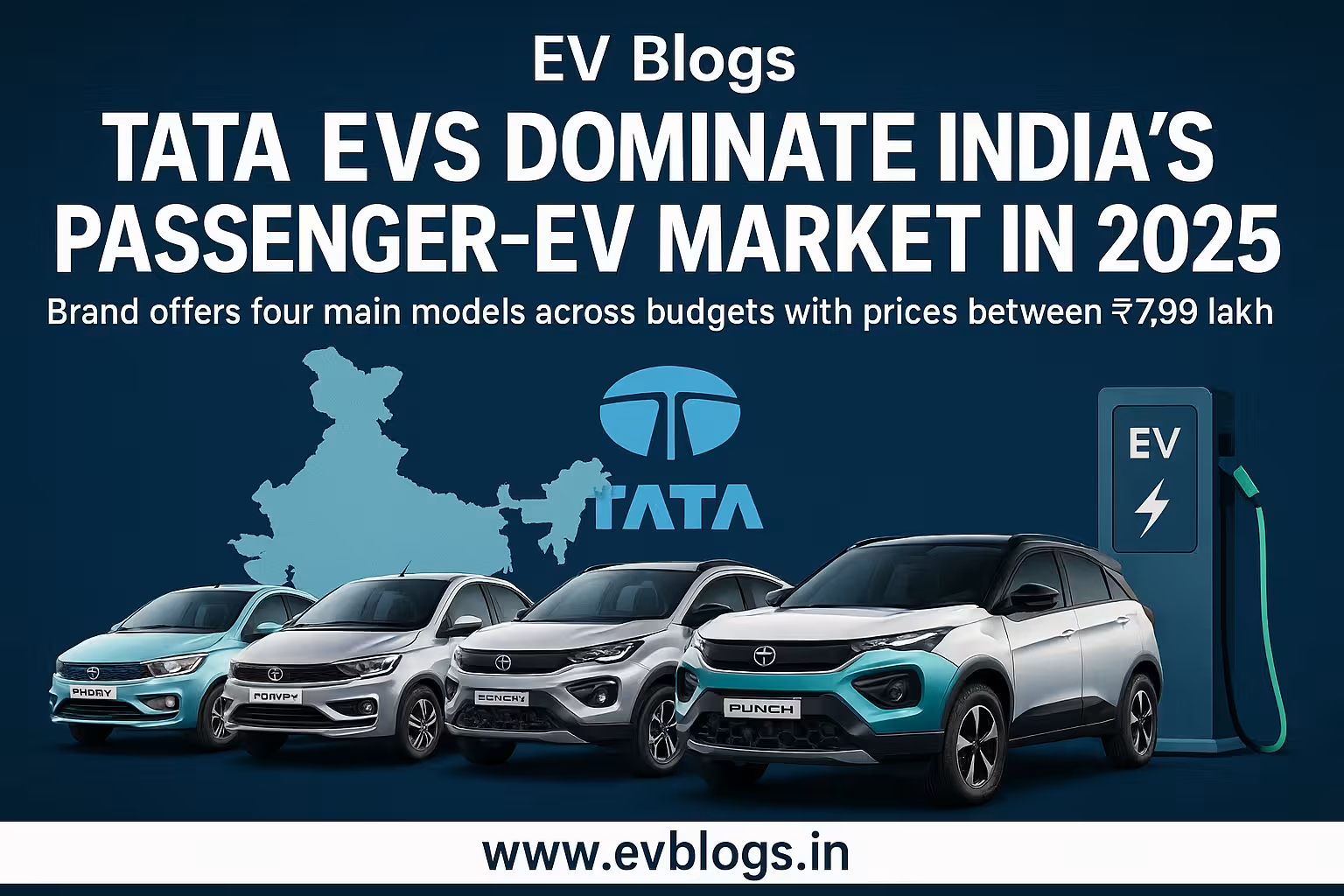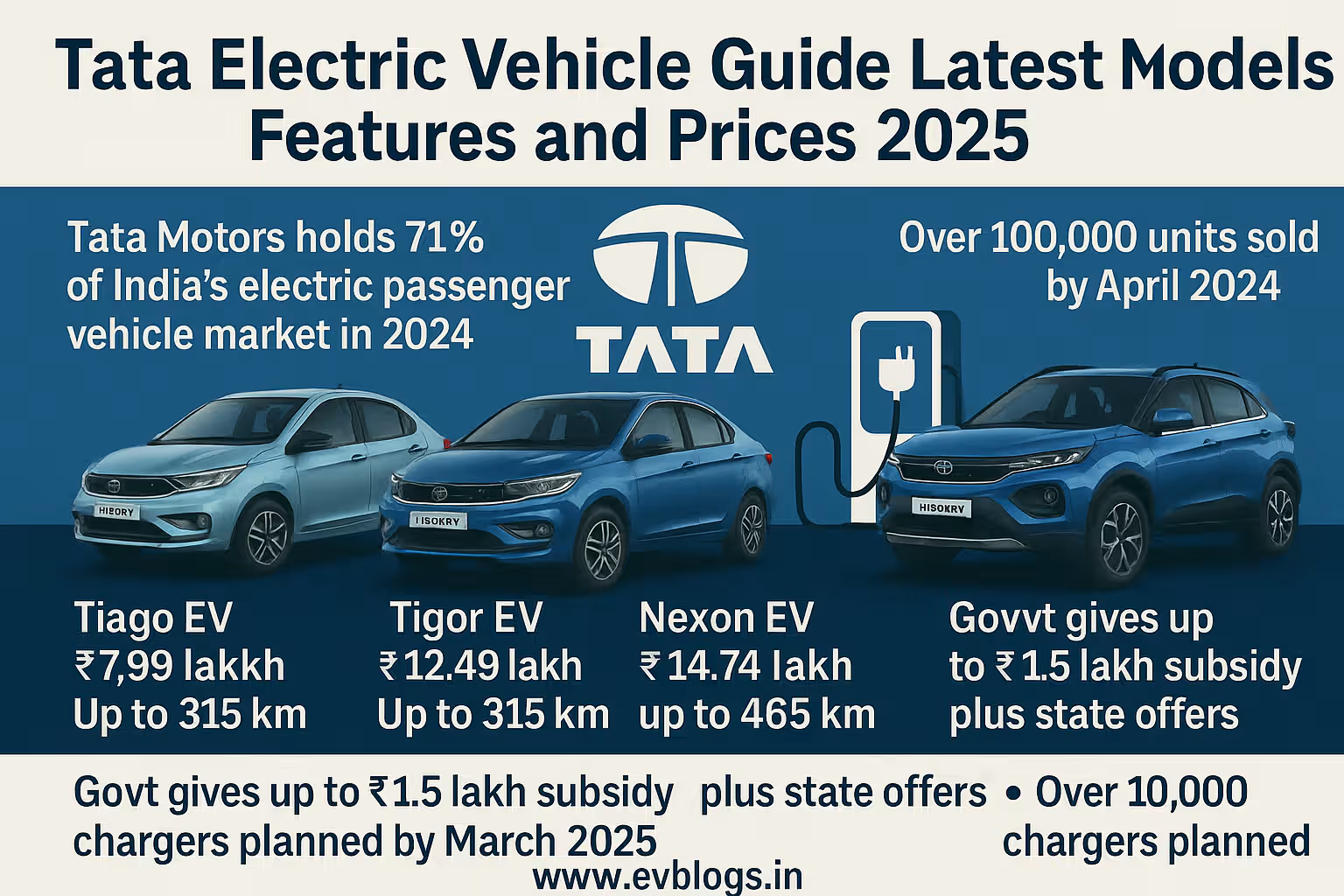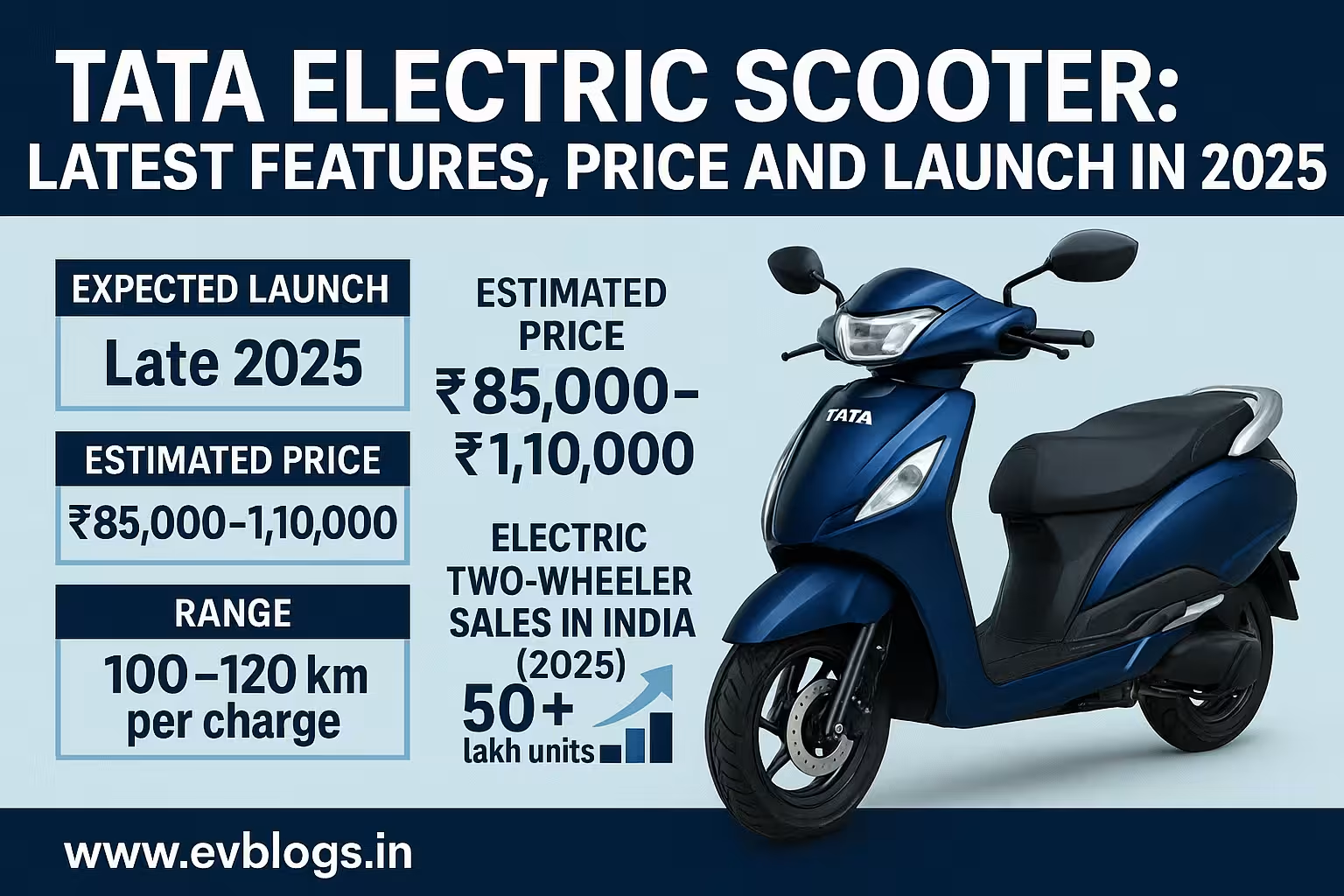Hedhvick Hirav
Hedhvick Hirav is a dedicated EV researcher and editor with over 4 years of experience in India’s growing electric vehicle ecosystem. Their contributions have been recognized in leading sustainability publications and automotive journals.
Summarize & analyze this article with
Choose an AI assistant and open this article directly:
Tip: if the AI doesn’t fetch the page automatically, paste the article URL manually.
Electric cars are vehicles powered by electricity instead of petrol or diesel. In India, the demand for electric cars is rising fast due to lower running costs, government support, and a push for cleaner air. In 2024, over 60,000 electric cars were sold nationwide—a jump of 110 percent from 2022 (Source: Vahan Dashboard, Ministry of Road Transport and Highways). For anyone considering their next car or looking for eco-friendly options in 2025, electric cars offer many practical benefits and are becoming more affordable across Indian cities.
What Are Electric Cars and Why Are They Important in India?
Electric cars run on rechargeable batteries and electric motors instead of traditional engines. This means no tailpipe emissions, making them a cleaner choice for city driving. In India, where air pollution is a growing concern, switching to electric vehicles (EVs) can help reduce harmful gases like carbon monoxide and nitrogen oxides.
Why do electric cars matter in 2025?
- The Indian government has set a target: by 2030, 30 percent of all new car sales should be electric (NITI Aayog Policy Paper).
- Fuel prices are unpredictable; electricity is usually cheaper than petrol or diesel.
- Major carmakers like Tata Motors, Mahindra Electric, Hyundai, and MG Motor now offer several models suited for Indian roads.
How Is the Indian Electric Car Market Growing?
The EV market is expanding quickly thanks to new models, better battery technology, and more charging points. According to Statista’s 2024 data:
| Year | Number of Electric Cars Sold |
|---|---|
| 2021 | 14,690 |
| 2022 | 28,700 |
| 2023 | 57,200 |
| 2024 | ~60,000 (Jan–Nov) |
(Source: https://vahan.parivahan.gov.in/)
What are the leading factors behind this growth?
- Central government incentives under FAME II (Faster Adoption and Manufacturing of Electric Vehicles) scheme
- State-level subsidies on buying and registering EVs
- Investment in local battery production plants
Which Electric Cars Are Popular in India?
Indian buyers have choices in hatchbacks, SUVs, and sedans. Here are some top-selling models as per AutoCar India (Feb 2025):
| Model | Approximate Price (₹ lakh) | Real-world Range (km) |
|---|---|---|
| Tata Nexon EV | 15–19 | Up to 465 |
| MG ZS EV | 18–25 | Up to 461 |
| Hyundai Kona | 24–26 | Up to 452 |
| Tata Tiago EV | 7–12 | Up to 315 |
(Source: https://www.autocarindia.com/)
What Are the Pros and Cons of Using Electric Cars?
What advantages do electric cars offer?
- Low running cost: Charging an EV costs about ₹1.2 per km compared to ₹7+ per km for petrol cars.
- Less maintenance: Fewer moving parts mean reduced servicing needs.
- Government benefits: Lower road tax and registration fees in many states.
What are the main challenges with electric cars?
- Limited charging infrastructure: Charging stations are growing but still not as common as petrol pumps.
- Higher upfront cost: Even with subsidies, EVs can be costlier than similar petrol/diesel cars.
- Range anxiety: Some users worry about long trips or lack of charging options in remote areas.
How Do Charging Stations Work in India?
Where can you charge an electric car?
Charging stations are found at public parking lots, malls, office complexes, and some residential societies. As per Bureau of Energy Efficiency’s March 2024 report:
- Over 9,200 public charging stations are live in India
- Delhi NCR leads with more than 1,250 stations
- New companies like Tata Power and Ather Energy have set up fast-charging networks
How long does it take to charge an electric car?
It depends on the charger type:
- Fast chargers: Recharge up to 80 percent in under one hour.
- Regular home chargers: Take about six to eight hours for a full charge.
What Is the Cost Comparison Between Electric Cars and Petrol Cars?
Here is a quick breakdown using real-world numbers:
| Parameter | Petrol Car (₹) | Electric Car (₹) |
|---|---|---|
| Average price | ₹8–16 lakh | ₹10–20 lakh |
| Running cost/km | ₹7+ | ₹1–1.5 |
| Maintenance/year | ₹7,500+ | ₹3,000–4,000 |
Electric cars may cost more upfront but save money over time due to lower fuel and maintenance costs.
How Are Different Sectors Impacted by Electric Cars?
Who benefits most from electric vehicles?
- Commuters: Daily city travellers save on fuel.
- Fleet operators & cab services: Lower operational costs increase profits.
- Environment: Reduced greenhouse gas emissions help fight pollution.
Case Study: An e-cab service in Bangalore switched its fleet from diesel to electric in early 2024. After one year:
- Fuel expenses dropped by nearly half
- Customer satisfaction improved due to quieter rides
What Are the Future Trends for Electric Cars in India?
By end of FY25:
- Over one lakh new EV registrations expected
- Battery prices predicted to fall by another ten percent (IEA Global EV Outlook)
- Government working towards setting up at least one charging station every three kilometres in major cities
Startups focusing on battery swapping tech may make longer intercity trips easier soon.
Quick Recap
- Over sixty thousand electric cars sold in India during Jan–Nov 2024
- Buyers get government subsidies plus low running costs (about ₹1.2/km)
- Main challenges include fewer charging points and higher initial prices
- Market leaders: Tata Nexon EV, MG ZS EV, Hyundai Kona
- Battery tech improvements will make future models cheaper and greener
People Also Ask
Q1: Is it worth buying an electric car in India in 2025?
Yes; with falling battery prices and more charging stations coming up across cities like Delhi and Bangalore, owning an EV is practical for daily use.
Q2: Which state has the most incentives for buying an electric car?
Maharashtra offers one of the highest subsidies along with Delhi; both provide up to ₹2 lakh off on select models.
Q3: How long do batteries last in Indian conditions?
Most batteries come with a warranty of eight years or around one lakh kilometres; real-world reports show good performance even after five years.
Q4: Can I charge my car at home?
Yes; home charging units can be installed easily; overnight charging suits most urban users.
Q5: Do banks offer loans for buying electric cars?
Nearly all major banks now have green auto loan schemes with lower interest rates for EV buyers.
Q6: Are second hand electric cars available?
Yes; resale markets are small but growing rapidly especially in metros like Mumbai and Bengaluru.
Ready to compare your options or book a test drive? Check out official automaker websites or visit your nearest dealer today—going green has never been easier!


